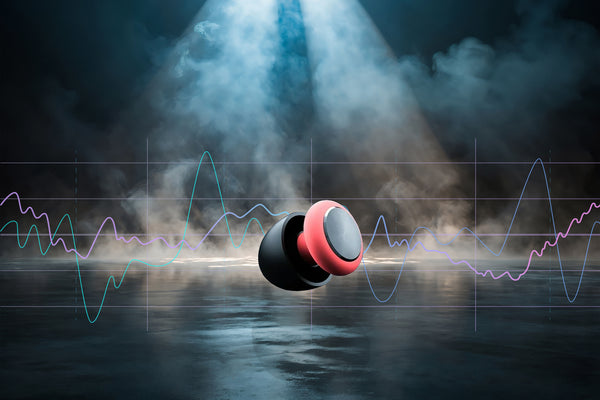The Science of Ear Fatigue: Why Musicians Struggle to Hear After Long Sessions
When Your Ears Get Tired, So Does Your Music
After hours in the studio or on stage, many musicians notice their ears feel dull, sounds become muddy, and their ability to mix or perform accurately diminishes. This isn’t just exhaustion—it’s called ear fatigue, and it’s a real physiological response to prolonged sound exposure.
Ear fatigue affects everyone who works with music, from producers and audio engineers to drummers and vocalists. Without proper precautions, repeated ear fatigue can lead to long-term hearing damage and compromised sound perception—two things no musician can afford.
What Causes Ear Fatigue?
Ear fatigue happens when the tiny hair cells (stereocilia) in the inner ear become overworked due to constant exposure to sound, particularly loud and sustained frequencies.
-
Volume Intensity – Higher decibel levels put more strain on the ears, leading to quicker fatigue.
-
Frequency Overload – High and low frequencies require more auditory processing, wearing out the inner ear faster.
-
Exposure Duration – The longer the session, the harder it is for ears to recover between sounds.
- Lack of Rest Periods – Continuous listening prevents the ears from recalibrating, causing temporary desensitization.
How Ear Fatigue Affects Musicians
-
Loss of Frequency Perception – Extended exposure leads to diminished sensitivity, making it harder to hear subtle mix details or tuning shifts.
-
Temporary Muffled Hearing – After long rehearsals or mixing sessions, sounds may seem flat or distant.
-
Inaccurate Mixing Decisions – Overworked ears lead to overcompensating EQ choices, causing unbalanced mixes.
- Increased Stress & Mental Fatigue – The brain works harder to process sounds, leading to headaches, exhaustion, and frustration.

How Musicians Can Prevent Ear Fatigue
-
Use High-Fidelity Earplugs During Practice & Performance – Lowering the volume without distorting sound helps reduce strain while keeping clarity intact.
-
Take Listening Breaks – The "60/10 rule" (60 minutes of playing, 10 minutes of silence) gives ears time to reset.
-
Keep Volume Levels in Check – Whether it’s monitors, headphones, or amps, reduce unnecessary loudness to minimize fatigue.
-
Alternate Between Different Monitoring Systems – Switching between studio monitors, headphones, and reference speakers helps distribute the listening load.
- Stay Hydrated & Rested – Proper hydration and sleep improve circulation in the auditory system, aiding recovery.
Protect Your Ears, Preserve Your Sound
Ear fatigue is a warning sign that your hearing is being overworked. By practicing mindful listening habits and using proper protection, musicians can preserve their hearing, improve their performance, and make better creative decisions.
Take care of your ears today, so your music lasts a lifetime. Grab Your Spares.

